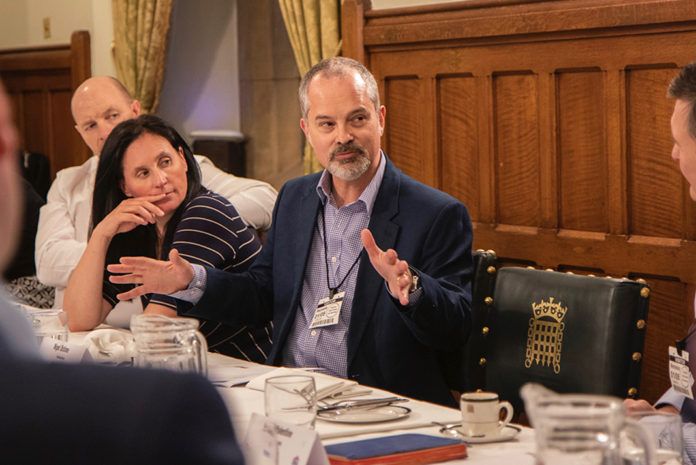A roundtable discussing how off-site manufacturing can improve build standards has called for industry and government collaboration to agree tougher building regulations for off-site construction to differentiate it from traditional build methods.
The idea was one of five recommendations to come from the event, held at the House of Commons and organised by the Westminster Sustainable Business Forum with support from the British Board of Agrément (BBA).
Speaking at the roundtable, BBA technical excellence director, Paul Valentine, said off-site construction represented an ‘important opportunity’ to drive up standards, improve the sustainability of buildings and make it easier to meet quality assurance standards. The BBA now intends to consider how its certification process can work with the seven-category Modern Methods of Construction (MMC) framework to better designate systems.
Nigel Ostime, product delivery director at award-winning Hawkins\Brown architects, believed that off-site construction could improve the quality of housing and increase productivity but identified barriers to this, including architects’ and designers’ lack of manufacturing and assembly experience; lack of a supply chain/central database for producers of off-site construction products; procurement practices discouraging MMC and issues with insurance/assurance of off-site construction.
The meeting debated how off-site construction requires early engagement across the build board, but current procurement practices inhibit engagement with the supply chain and fabricators at critical early stages. Procuring for value rather than lowest cost, particularly on public projects, would allow for the whole life cost and durability of an asset to be considered, rather than just the initial capital cost, leading to higher quality and lower running costs.
Another idea discussed revolved around considering housing new-builds as ‘products’, moving towards their mass customisation with ‘designed intent’ not left to multiple levels of interpretation by differing contractors. It was considered this approach would also de-risk the industry, allowing in-use testing of the building ‘product’ and continuous evaluation and improvement of homes.
Roundtable recommendations also included:
- Government should support providers of Modern Methods of Construction through investment in early product innovation and development.
- Government and industry should collaborate on harmonising current digital models and formats of buildings, so they are fundamentally interchangeable, or by creating non-proprietary central digital building model.
- Government and industry should collaborate on driving better performance labelling of housing, including components like light, space, ventilation, and energy performance, empowering consumers to ask more of house-builders and drive building performance.




